- Home
- Wilkie Collins
Man and Wife Page 40
Man and Wife Read online
Page 40
he came to, without appearing to care what place he occupied at
his own feast. The guests, following his example, sat where they
pleased, reckless of precedents and dignities. Mrs. Delamayn,
feeling a special interest in a young lady who was shortly to be
a bride, took Blanche's arm. Lady Lundie attached herself
resolutely to her hostess on the other side. The three sat
together. Mrs. Delamayn did her best to encourage Blanche to
talk, and Blanche did her best to meet the advances made to her.
The experiment succeeded but poorly on either side. Mrs. Delamayn
gave it up in despair, and turned to Lady Lundie, with a strong
suspicion that some unpleasant subject of reflection was preying
privately on the bride's mind. The conclusion was soundly drawn.
Blanche's little outbreak of temper with her friend on the
terrace, and Blanche's present deficiency of gayety and spirit,
were attributable to the same cause. She hid it from her uncle,
she hid it from Arnold--but she was as anxious as ever, and as
wretched as ever, about Anne; and she was still on the watch (no
matter what Sir Patrick might say or do) to seize the first
opportunity of renewing the search for her lost friend.
Meanwhile the eating, the drinking, and the talking went merrily
on. The band played its liveliest melodies; the servants kept the
glasses constantly filled: round all the tables gayety and
freedom reigned supreme. The one conversation in progress, in
which the talkers were not in social harmony with each other, was
the conversation at Blanche's side, between her step-mother and
Mrs. Delamayn.
Among Lady Lundie's other accomplishments the power of making
disagreeable discoveries ranked high. At the dinner in the glade
she had not failed to notice--what every body else had passed
over--the absence at the festival of the hostess's
brother-in-law; and more remarkable still, the disappearance of a
lady who was actually one of the guests staying in the house: in
plainer words, the disappearance of Mrs. Glenarm.
"Am I mistaken?" said her ladyship, lifting her eye-glass, and
looking round the tables. "Surely there is a member of our party
missing? I don't see Mr. Geoffrey Delamayn."
"Geoffrey promised to be here. But he is not particularly
attentive, as you may have noticed, to keeping engagements of
this sort. Every thing is sacrificed to his training. We only see
him at rare intervals now."
With that reply Mrs. Delamayn attempted to change the subject.
Lady Lundie lifted her eye-glass, and looked round the tables for
the second time.
"Pardon me," persisted her ladyship--"but is it possible that I
have discovered another absentee? I don't see Mrs. Glenarm. Yet
surely she must be here! Mrs. Glenarm is not training for a
foot-race. Do you see her? _I_ don't."
"I missed her when we went out on the terrace, and I have not
seen her since."
"Isn't it very odd, dear Mrs. Delamayn?"
"Our guests at Swanhaven, Lady Lundie, have perfect liberty to do
as they please."
In those words Mrs. Delamayn (as she fondly imagined) dismissed
the subject. But Lady Lundie's robust curiosity proved
unassailable by even the broadest hint. Carried away, in all
probability, by the infection of merriment about her, her
ladyship displayed unexpected reserves of vivacity. The mind
declines to realize it; but it is not the less true that this
majestic woman actually simpered!
"Shall we put two and two together?" said Lady Lundie, with a
ponderous playfulness wonderful to see. "Here, on the one hand,
is Mr. Geoffrey Delamayn--a young single man. And here, on the
other, is Mrs. Glenarm--a young widow. Rank on the side of the
young single man; riches on the side of the young widow. And both
mysteriously absent at the same time, from the same pleasant
party. Ha, Mrs. Delamayn! should I guess wrong, if I guessed that
_you_ will have a marriage in the family, too, before long?"
Mrs. Delamayn looked a little annoyed. She had entered, with all
her heart, into the conspiracy for making a match between
Geoffrey and Mrs. Glenarm. But she was not prepared to own that
the lady's facility had (in spite of all attempts to conceal it
from discovery) made the conspiracy obviously successful in ten
days' time.
"I am not in the secrets of the lady and gentleman whom you
mention," she replied, dryly.
A heavy body is slow to acquire movement--and slow to abandon
movement, when once acquired. The playfulness of Lady Lundie,
being essentially heavy, followed the same rule. She still
persisted in being as lively as ever.
"Oh, what a diplomatic answer!" exclaimed her ladyship. "I think
I can interpret it, though, for all that. A little bird tells me
that I shall see a Mrs. Geoffrey Delamayn in London, next season.
And I, for one, shall not be surprised to find myself
congratulating Mrs. Glenarm."
"If you persist in letting your imagination run away with you,
Lady Lundie, I can't possibly help it. I can only request
permission to keep the bridle on _mine._"
This time, even Lady Lundie understood that it would be wise to
say no more. She smiled and nodded, in high private approval of
her own extraordinary cleverness. If she had been asked at that
moment who was the most brilliant Englishwoman living, she would
have looked inward on herself--and would have seen, as in a glass
brightly, Lady Lundie, of Windygates.
From the moment when the talk at her side entered on the subject
of Geoffrey Delamayn and Mrs. Glenarm--and throughout the brief
period during which it remained occupied with that topic--Blanche
became conscious of a strong smell of some spirituous liquor
wafted down on her, as she fancied, from behind and from above.
Finding the odor grow stronger and stronger, she looked round to
see whether any special manufacture of grog was proceeding
inexplicably at the back of her chair. The moment she moved her
head, her attention was claimed by a pair of tremulous gouty old
hands, offering her a grouse pie, profusely sprinkled with
truffles.
"Eh, my bonny Miss!" whispered a persuasive voice at her ear,
"ye're joost stairving in a land o' plenty. Tak' my advice, and
ye'll tak' the best thing at tebble--groose-poy, and trufflers."
Blanche looked up.
There he was--the man of the canny eye, the fatherly manner, and
the mighty nose--Bishopriggs--preserved in spirits and
ministering at the festival at Swanhaven Lodge!
Blanche had only seen him for a moment on the memorable night of
the storm, when she had surprised Anne at the inn. But instants
passed in the society of Bishopriggs were as good as hours spent
in the company of inferior men. Blanche instantly recognized him;
instantly called to mind Sir Patrick's conviction that he was in
possession of Anne's lost letter; instantly rushed to the
conclusion that, in discovering Bishopriggs, she had discov
ered a
chance of tracing Anne. Her first impulse was to claim
acquaintance with him on the spot. But the eyes of her neighbors
were on her, warning her to wait. She took a little of the pie,
and looked hard at Bishopriggs. That discreet man, showing no
sign of recognition on his side, bowed respectfully, and went on
round the table.
"I wonder whether he has got the letter about him?" thought
Blanche.
He had not only got the letter about him--but, more than that, he
was actually then on the look-out for the means of turning the
letter to profitable pecuniary account.
The domestic establishment of Swanhaven Lodge included no
formidable array of servants. When Mrs. Delamayn gave a large
party, she depended for such additional assistance as was needed
partly on the contributions of her friends, partly on the
resources of the principal inn at Kirkandrew. Mr. Bishopriggs,
serving at the time (in the absence of any better employment) as
a supernumerary at the inn, made one among the waiters who could
be spared to assist at the garden-party. The name of the
gentleman by whom he was to be employed for the day had struck
him, when he first heard it, as having a familiar sound. He had
made his inquiries; and had then betaken himself for additional
information, to the letter which he had picked up from the parlor
floor at Craig Fernie
The sheet of note-paper, lost by Anne, conta ined, it may be
remembered, two letters--one signed by herself; the other signed
by Geoffrey--and both suggestive, to a stranger's eye, of
relations between the writers which they were interested in
concealing from the public view.
Thinking it just possible--if he kept his eyes and ears well open
at Swanhaven--that he might improve his prospect of making a
marketable commodity of the stolen correspondence, Mr.
Bishopriggs had put the letter in his pocket when he left
Kirkandrew. He had recognized Blanche, as a friend of the lady at
the inn--and as a person who might perhaps be turned to account,
in that capacity. And he had, moreover, heard every word of the
conversation between Lady Lundie and Mrs. Delamayn on the subject
of Geoffrey and Mrs. Glenarm. There were hours to be passed
before the guests would retire, and before the waiters would be
dismissed. The conviction was strong in the mind of Mr.
Bishopriggs that he might find good reason yet for congratulating
himself on the chance which had associated him with the
festivities at Swanhaven Lodge.
It was still early in the afternoon when the gayety at the
dinner-table began, in certain quarters, to show signs of wearing
out.
The younger members of the party--especially the ladies--grew
restless with the appearance of the dessert. One after another
they looked longingly at the smooth level of elastic turf in the
middle of the glade. One after another they beat time absently
with their fingers to the waltz which the musicians happened to
be playing at the moment. Noticing these symptoms, Mrs. Delamayn
set the example of rising; and her husband sent a message to the
band. In ten minutes more the first quadrille was in progress on
the grass; the spectators were picturesquely grouped round,
looking on; and the servants and waiters, no longer wanted, had
retired out of sight, to a picnic of their own.
The last person to leave the deserted tables was the venerable
Bishopriggs. He alone, of the men in attendance, had contrived to
combine a sufficient appearance of waiting on the company with a
clandestine attention to his own personal need of refreshment.
Instead of hurrying away to the servants' dinner with the rest,
he made the round of the tables, apparently clearing away the
crumbs--actually, emptying the wine-glasses. Immersed in this
occupation, he was startled by a lady's voice behind him, and,
turning as quickly as he could, found himself face to face with
Miss Lundie.
"I want some cold water," said Blanche. "Be so good as to get me
some from the spring."
She pointed to the bubbling rivulet at the farther end of the
glade.
Bishopriggs looked unaffectedly shocked.
"Lord's sake, miss," he exclaimed "d'ye relly mean to offend yer
stomach wi' cauld water--when there's wine to be had for the
asking!"
Blanche gave him a look. Slowness of perception was not on the
list of the failings of Bishopriggs. He took up a tumbler, winked
with his one available eye, and led the way to the rivulet. There
was nothing remarkable in the spectacle of a young lady who
wanted a glass of spring-water, or of a waiter who was getting it
for her. Nobody was surprised; and (with the band playing) nobody
could by any chance overhear what might be said at the
spring-side.
"Do you remember me at the inn on the night of the storm?" asked
Blanche.
Mr. Bishopriggs had his reasons (carefully inclosed in his
pocketbook) for not being too ready to commit himself with
Blanche at starting.
"I'm no' saying I canna remember ye, miss. Whar's the man would
mak' sic an answer as that to a bonny young leddy like you?"
By way of assisting his memory Blanche took out her purse.
Bishopriggs became absorbed in the scenery. He looked at the
running water with the eye of a man who thoroughly distrusted it,
viewed as a beverage.
"There ye go," he said, addressing himself to the rivulet,
"bubblin' to yer ain annihilation in the loch yonder! It's little
I know that's gude aboot ye, in yer unconvairted state. Ye're a
type o' human life, they say. I tak' up my testimony against
_that._ Ye're a type o' naething at all till ye're heated wi'
fire, and sweetened wi' sugar, and strengthened wi' whusky; and
then ye're a type o' toddy--and human life (I grant it) has got
something to say to ye in that capacity!"
"I have heard more about you, since I was at the inn," proceeded
Blanche, "than you may suppose." (She opened her purse: Mr.
Bishopriggs became the picture of attention.) "You were very,
very kind to a lady who was staying at Craig Fernie," she went
on, earnestly. "I know that you have lost your place at the inn,
because you gave all your attention to that lady. She is my
dearest friend, Mr. Bishopriggs. I want to thank you. I do thank
you. Please accept what I have got here?"
All the girl's heart was in her eyes and in her voice as she
emptied her purse into the gouty (and greedy) old hand of
Bishopriggs.
A young lady with a well-filled purse (no matter how rich the
young lady may be) is a combination not often witnessed in any
country on the civilized earth. Either the money is always spent,
or the money has been forgotten on the toilet-table at home.
Blanche's purse contained a sovereign and some six or seven
shillings in silver. As pocket-money for an heiress it was
contemptible. But as a gratuity to Bishopriggs it was
/> magnificent. The old rascal put the money into his pocket with
one hand, and dashed away the tears of sensibility, which he had
_not_ shed, with the other.
"Cast yer bread on the waters," cried Mr. Bishopriggs, with his
one eye raised devotionally to the sky, "and ye sall find it
again after monny days! Heeh! hech! didna I say when I first set
eyes on that puir leddy, 'I feel like a fether to ye?' It's
seemply mairvelous to see hoo a man's ain gude deeds find him oot
in this lower warld o' ours. If ever I heard the voice o'
naitural affection speaking in my ain breast," pursued Mr.
Bishopriggs, with his eye fixed in uneasy expectation on Blanche,
"it joost spak' trumpet-tongued when that winsome creature first
lookit at me. Will it be she now that told ye of the wee bit
sairvice I rendered to her in the time when I was in bondage at
the hottle?"
"Yes--she told me herself."
"Might I mak' sae bauld as to ask whar' she may be at the present
time?"
"I don't know, Mr. Bishopriggs. I am more miserable about it than
I can say. She has gone away--and I don't know where."
"Ow! ow! that's bad. And the bit husband-creature danglin' at her
petticoat's tail one day, and awa' wi' the sunrise next
mornin'--have they baith taken leg-bail together?"
"I know nothing of him; I never saw him. You saw him. Tell
me--what was he like?"
"Eh! he was joost a puir weak creature. Didn't know a glass o'
good sherry-wine when he'd got it. Free wi' the siller--that's a'
ye can say for him--free wi' the siller!"
Finding it impossible to extract from Mr. Bishopriggs any clearer
description of the man who had been with Anne at the inn than
this, Blanche approached the main object of the interview. Too
anxious to waste time in circumlocution, she turned the
conversation at once to the delicate and doubtful subject of the
lost letter.
"There is something else that I want to say to you," she resumed.
"My friend had a loss while she was staying at the inn."
The clouds of doubt rolled off the mind of Mr. Bishopriggs. The
lady's friend knew of the lost letter. And, better still, the
lady's friend looked as if she wanted it!
"Ay! ay!" he said, with all due appearance of carelessness. "Like
eneugh. From the mistress downward, they're a' kittle cattle at
the inn since I've left 'em. What may it ha' been that she lost?"
"She lost a letter."
The look of uneasy expectation reappeared in the eye of Mr.
Bishopriggs. It was a question--and a serious question, from his
point of view--whether any suspicion of theft was attached to the
disappearance of the letter.
"When ye say 'lost,' " he asked, "d'ye mean stolen?"
Blanche was quite quick enough to see the necessity of quieting
his mind on this point.
"Oh no!" she answered. "Not stolen. Only lost. Did you hear about
it?"
"Wherefore suld _I_ ha' heard aboot it?" He looked hard at
Blanche --and detected a momentary hesitation in her face. "Tell
me this, my young leddy," he went on, advancing warily near to
the point. "When ye're speering for news o' your friend's lost
letter--what sets ye on comin' to _me?_"
Those words were decisive. It is hardly too much to say that
Blanche's future depended on Blanche's answer to that question.
If she could have produced the money; and if she had said,
boldly, "You have got the letter, Mr. Bishopriggs: I pledge my
word that no questions shall be asked, and I offer you ten pounds
for it"--in all probability the bargain would have been struck;
and the whole course of coming events would, in that case, have
been altered. But she had no money left; and there were no
friends, in the circle at Swanhaven, to whom she could apply,
without being misinterpreted, for a loan of ten pounds, to be
privately intrusted to her on the spot. Under stress of sheer
necessity Blanche abandoned all hope of making any present appeal
of a pecuniary nature to the confidence of Bishopriggs.

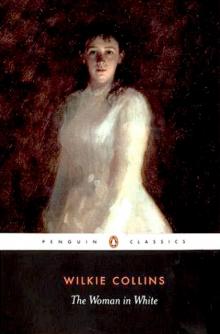 The Woman in White
The Woman in White The Queen of Hearts
The Queen of Hearts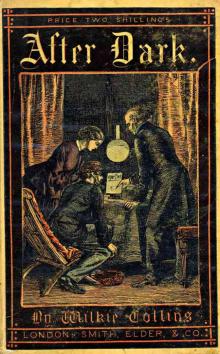 Miss Jeromette and the Clergyman
Miss Jeromette and the Clergyman Man and Wife
Man and Wife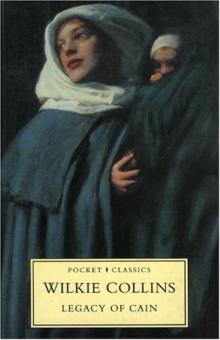 The Legacy of Cain
The Legacy of Cain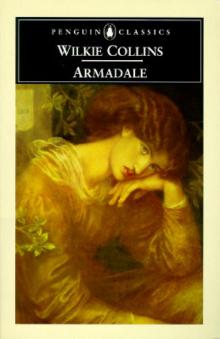 Armadale
Armadale The Frozen Deep
The Frozen Deep John Jago's Ghost or the Dead Alive
John Jago's Ghost or the Dead Alive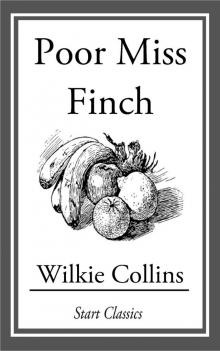 Poor Miss Finch
Poor Miss Finch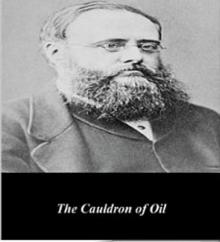 The Cauldron of Oil: A Case Worth Looking At
The Cauldron of Oil: A Case Worth Looking At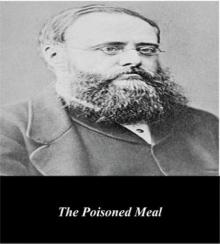 The Poisoned Meal
The Poisoned Meal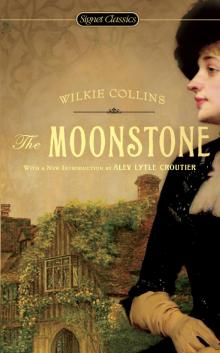 The Moonstone
The Moonstone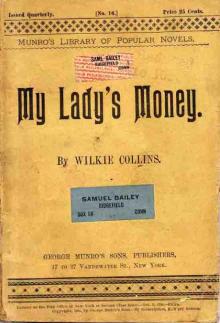 My Lady's Money
My Lady's Money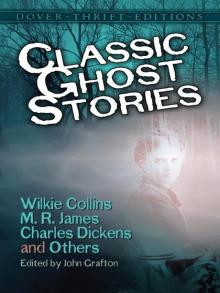 Classic Ghost Stories
Classic Ghost Stories Jezebel's Daughter
Jezebel's Daughter The Devil's Spectacles
The Devil's Spectacles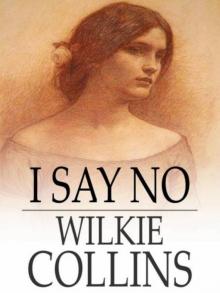 I Say No
I Say No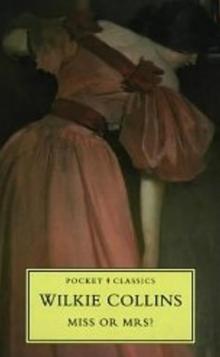 Miss or Mrs.?
Miss or Mrs.?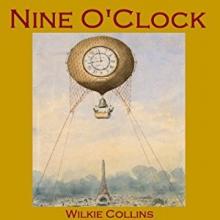 Nine O'Clock
Nine O'Clock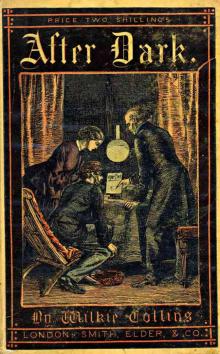 The Lawyer's Story of a Stolen Letter
The Lawyer's Story of a Stolen Letter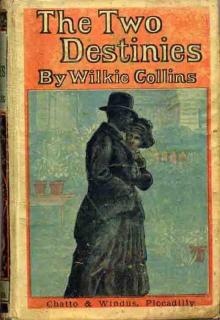 The Two Destinies
The Two Destinies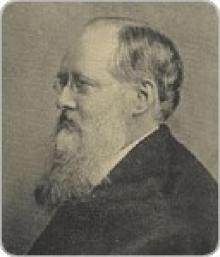 Mr. Percy and the Prophet
Mr. Percy and the Prophet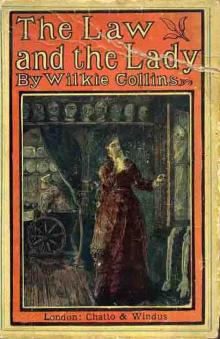 The Law and the Lady
The Law and the Lady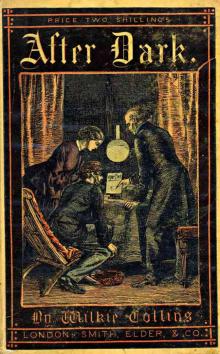 The Nun's Story of Gabriel's Marriage
The Nun's Story of Gabriel's Marriage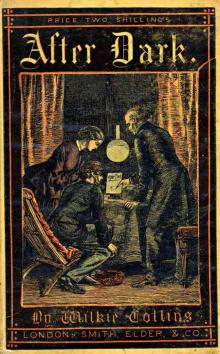 After Dark
After Dark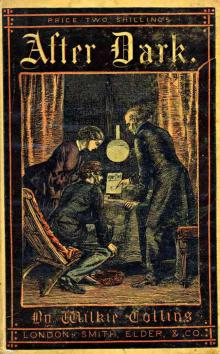 Mr. Captain and the Nymph
Mr. Captain and the Nymph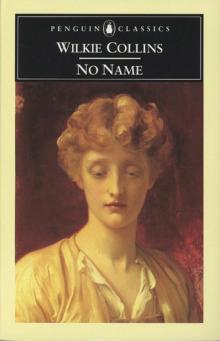 No Name
No Name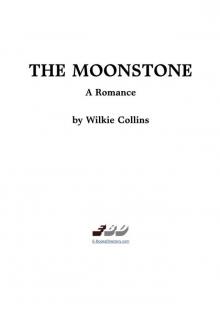 The Moonstone (Penguin Classics)
The Moonstone (Penguin Classics) Antonina
Antonina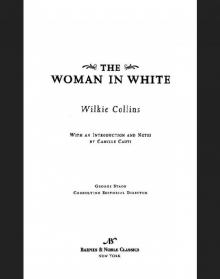 Woman in White (Barnes & Noble Classics Series)
Woman in White (Barnes & Noble Classics Series)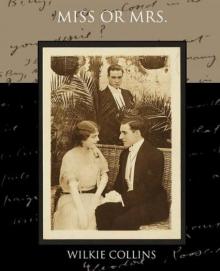 Miss or Mrs
Miss or Mrs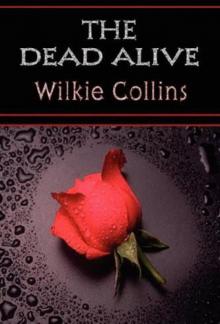 The Dead Alive
The Dead Alive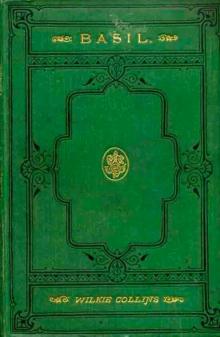 Basil
Basil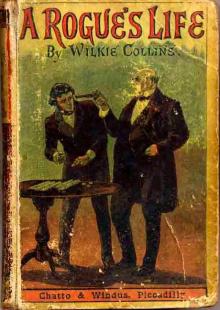 A Rogue's Life
A Rogue's Life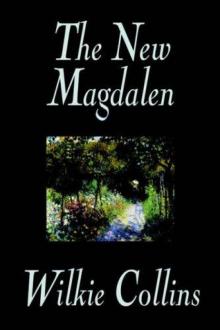 The New Magdalen
The New Magdalen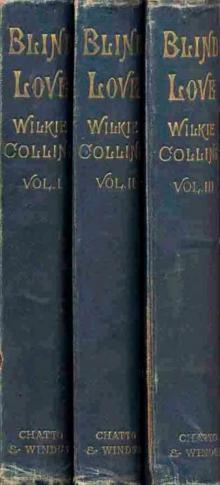 Blind Love
Blind Love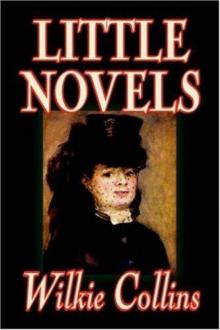 Little Novels
Little Novels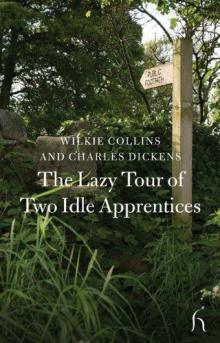 The Lazy Tour of Two Idle Apprentices
The Lazy Tour of Two Idle Apprentices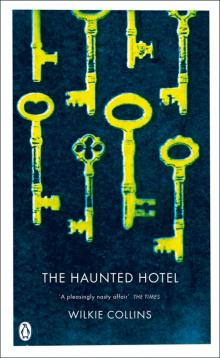 The Haunted Hotel
The Haunted Hotel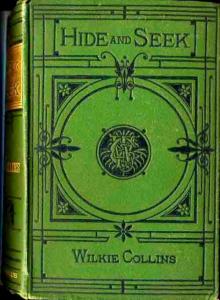 Hide and Seek
Hide and Seek